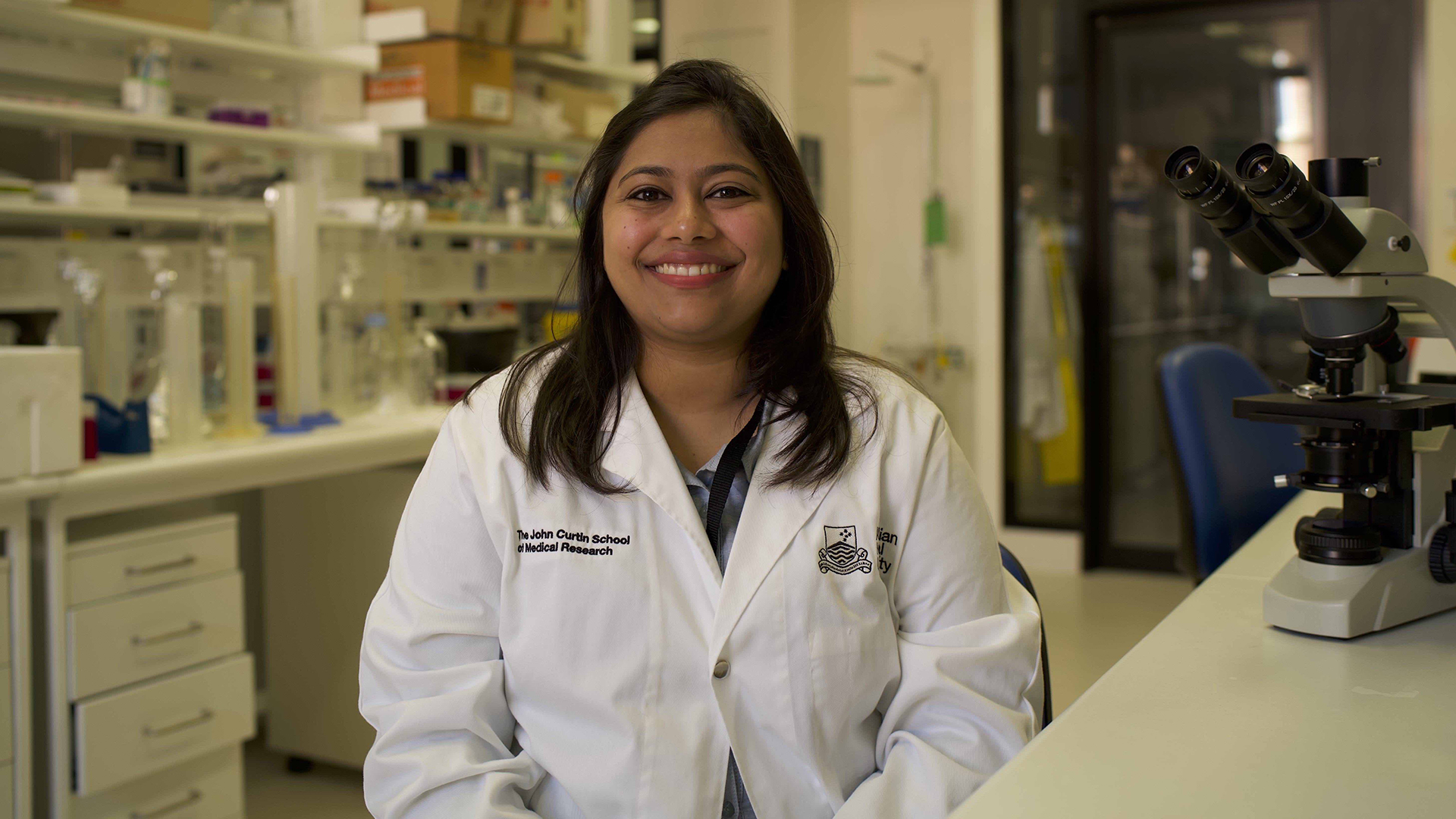Bowel cancer research wins Cancer Council ACT Research Grant

How can the development of a cancer that claims about 100 lives in Australia per week be prevented?
Figuring out how a group of proteins known as DNA sensors work in the cell may light a path towards an answer.
At Australian National University, Dr Anukriti Mathur, Professor Si Ming Man, and Professor Narci Teoh lead a research project that investigates how a previously identified DNA sensor protects against bowel cancer, the second leading cause of cancer-related deaths.
The team has been granted $65,000 by Cancer Council ACT as one of the two Cancer Council ACT Research Grant recipients for this year. Another ANU project, led by JCSMR researcher Dr Rita Ferreira to explore new ways to manage a common complication of chemotherapy, also received a $65,000 grant. The announcement was made at Australia’s Biggest Morning Tea held at Government House today.
“Cancer Council ACT Research Grants are specifically targeted to help local early career cancer researchers develop their research in Canberra’s universities and hospitals,” said Dr Paul Craft, Research Committee Chair and Cancer Council ACT Board member.
As an early career woman researcher, Dr Mathur said becoming a recipient of this grant will progress her experimental work and accelerate her scientific career.
Most importantly, the grant will “help our team answer an important question in the field”, Dr Mathur said.

L-R: Dr Paul Craft (CCACT Board), Professor Si Ming Man, Her Excellency Mrs Linda Hurley, Dr Anukriti Mathur, His Excellency General the Honourable David Hurley AC DSC (Retd), Roger Buckley (CCACT Board President). Image: Cancer Council ACT
DNA sensors are components of the innate immune system with the ability to bind DNA molecules and induce a wide range of innate immune responses. While previous studies on mice have suggested that the identified DNA sensor could help inhibit the development of bowel cancer by preventing inflammation and overt cellular proliferation in the colon, the precise molecular mechanisms underlying the protective response remains unknown.
“Colorectal cancer is a highly complex and multifactorial disease, requiring contributions from the immune system, host genetic factors, the gut microbiota, and the environment,” said Dr Mathur.
To understand how sensing DNA and DNA damage in the cells play a part in mediating a protective response against bowel cancer, Dr Mathur and collaborators will first investigate the interactions between the DNA sensor and other proteins to trigger a protective signal in the cell.
On the other hand, they will examine the role of the DNA sensor in different cell types and their relevance to the development of bowel cancer.
By characterising the novel signalling pathway mediated by the DNA sensor in bowel cancer, the researchers could help to generate new diagnostic screening tools and even innovative immunotherapies that have the potential to save millions of lives.
“The research from this grant is directly relevant and impactful to the field of cancer biology and can provide answers to important questions concerning the causes, and potentially diagnosis, treatment or prevention of cancer,” Dr Mathur stated.
